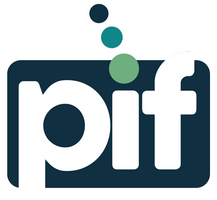Source: Andaria
Not the rubbish bin you put out for your local authority every week, but BINs that play an integral part of the payments process!
Author: Kevin McAdam
What is a BIN Sponsor?
Typically, a BIN sponsor is a company who offers card issuing services via their membership of one of the card scheme operators (such as Visa, Mastercard or Discover). They can support other companies to issue their own virtual or branded physical cards.
During the panel discussion, we explored how the role of BIN sponsors has become much more far-reaching than just providing clients with BINs.
More companies are seeking partnerships with BIN sponsors to enable them to bring products to market faster. Partnering provides the obvious benefits of economies of scale, working with experienced operators that understand the licensing and nuances of developing business in specific markets and verticals.
Over the last ten years there has been an explosion in the array of elements that can be supported by BIN Sponsors, from initial humble beginnings with pre-paid cards to a full suite of functionality which can now include virtual cards, credit, lending, insurance, crypto, loyalty services like cash-back and alternative payment vehicles like ApplePay. These can all dovetail with the core product elements in a payments proposition, including bank accounts, payment solutions for domestic and international use, card management and onboarding through robust KYC processes. Essentially, BIN sponsorship is the catalyst for providing the account and link to Scheme – and BIN sponsors will ensure that the programme is compliant with regulation and scheme rules.
Selecting the right BIN Sponsor
As solutions have evolved, so has the drive for partnerships, as well as what the innovators and entrepreneurs look for in their BIN Sponsor. It’s really important for businesses is to be clear on their requirements in terms of product, market, and target audience. This enables them to find the right sponsor who can best serve their individual business needs and growth objectives. The key variables will of course be price and competitiveness; but also that the BIN sponsor has demonstrable experience and understanding of client needs. BIN Sponsors need to educate clients on the steps ahead and realistic delivery timelines, and on matters such as managing prefund and settlement structures in relation to collateral and funding accounts. When selecting a BIN sponsor, it’s also important to understand their regulatory and compliance frameworks, reporting functions, project planning and implementation processes, credentials and case studies for the market being targeted and how their technology integrate and scale with the business’ own systems and expansion plans. BIN Sponsors’ planned innovation roadmaps also need to reflect the support that clients will need in the long term.
Responding to payments industry change
Following the irregularities that brought the downfall of Wirecard and the stresses that put on the whole payments community, there is renewed focus in the industry on taking forward the lessons from that experience. This includes the need for tighter controls covering money laundering, (ML) ensuring the safeguarding and repatriation of customer funds, and recognising the impact of regulatory intervention for different customer groups – particularly those vulnerable audiences.
This re-focus means the regulatory environment plays an ever more critical role in payments solutions models, with propositions expanding beyond just standard card programmes into more complex solutions. Despite the payments regulations in effect in Europe, there is no cookie cutter regulation that will work under each jurisdiction, so it requires constant due diligence to enable businesses to move from market to market.
A recent report issued by the European Banking Authority (EBA) provided feedback on the controls and processes in place for Payment Institutions around money laundering and Terrorist Financing (TF). Whilst not specifically related to BIN Sponsorship, there is synergy with some of aspects of BIN Sponsorship that now need greater focus, including managing high risk sectors and service providers, emerging technologies, multi-layered data – all of which add to risk levels. The use of virtual IBANs also creates ML/TF risk because it is not obvious where the underlying account is located and therefore risks creating gaps in supervisory coverage. Other notable comments covered the need for robust internal governance, transaction monitoring and suspicious transaction identification.
BIN sponsorship models provide important safeguards for clients without losing the creative and flexible approach that enables innovative digital propositions and user-friendly customer journeys. The key challenges will continue to be the scale of regulatory change, fraud management and liabilities, maintaining the level of technology, coupled with scaling resources and experience.
Coupled with some of the recent high-profile cases involving major payment operators, it was acknowledged within the PIF forum that regulators and the industry as a community will be seeking increased due diligence and oversight of planned programmes, and a possible drive towards only offering dedicated BINs, along with increased transparency and reporting.
However, the future is positive for BIN Sponsorship models and operators who have expanded their portfolio of services, compliance procedures, controls and resources to handle today’s challenges. Those who have also adapted to innovation and emerging opportunities such as new markets, and aligned areas such as financial inclusion and ESG propositions, will be those who drive the next generation of card programmes and payments solutions.
If you’d like to talk with one of Andaria’s experts about your payments challenges, get in touch.



